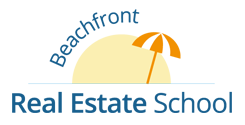To pass the Real Estate Licensing Exam, you'll need a clear strategy that goes beyond cramming.
You should start by understanding the exam format and creating a structured study plan that fits your schedule. Incorporating various study methods can make a significant difference, but it's critical to track your progress and adjust your approach as needed.
As you prepare, consider how managing exam day stress can impact your performance; knowing what to do on that day could be the key to your success.
What strategies will you implement to guarantee you're ready?
Understand the Exam Format
Understanding the exam format is key for your success in the real estate licensing exam. Knowing the exam structure helps you navigate the test confidently. Typically, the exam consists of 100 multiple-choice questions, which assess your knowledge across various topics, including property management, contracts, and real estate laws.
With a passing score required of 75% and an August 2023 pass rate of only 49% for first-time test-takers, familiarizing yourself with these question types can greatly improve your performance.
Each section of the exam covers specific areas of real estate. For instance, you might encounter questions that require you to apply concepts to real-life scenarios, testing your practical understanding. Some questions may focus on definitions or key terms, while others could involve calculations related to property transactions.
As you prepare, pay attention to the weighting of each section. Understanding which areas carry more points enables you to allocate your study time effectively. This strategic approach guarantees that you're well-prepared for the most critical parts of the exam.
Create a Study Plan
Creating a study plan is key for tackling the real estate licensing exam effectively. Start by setting clear goals. Break your study material into manageable sections and determine what you want to accomplish each week. This goal-setting approach keeps you focused and motivated as you progress.
Additionally, understanding the cost of obtaining a real estate license can help you budget your study time and resources effectively.
Next, prioritize time management. Assess your current schedule and dedicate specific blocks of time each day to study. Consistency is major, so try to stick to your timetable as closely as possible. Incorporate a mix of study techniques, like reading, practice tests, and flashcards, to keep things engaging.
Don't forget to include breaks in your plan to avoid burnout. Short, frequent breaks can help you maintain focus and retention.
Additionally, review your progress at the end of each week. This reflection allows you to adjust your study plan if needed, ensuring you're on track to meet your goals.
Lastly, stay adaptable. Life can throw surprises your way, so be prepared to shift your study sessions as necessary.
Utilize Study Resources
A variety of study resources can greatly enhance your preparation for the real estate licensing exam. One effective method is using flashcard techniques. These handy tools allow you to break down complex concepts into bite-sized pieces, making it easier to memorize key terms and definitions. You can create your own flashcards or find pre-made ones online tailored to the exam.
Additionally, consider utilizing support for exam preparation offered by institutions like Beachfront Real Estate School, where you can access unlimited study materials and guidance from licensed instructors.
In addition to flashcards, consider enrolling in online courses specifically designed for real estate exam preparation. These courses often feature expert instructors, interactive lessons, and up-to-date content that aligns with the exam syllabus. Online platforms provide flexibility, allowing you to study at your own pace and revisit challenging topics as needed.
Utilizing a combination of these resources can significantly boost your confidence and comprehension. The more diverse your study materials, the better prepared you'll be on exam day.
Practice With Sample Questions
After you've made good use of study resources like flashcards and online courses, it's time to put your knowledge to the test with sample questions. Practicing with sample tests is significant for reinforcing what you've learned and familiarizing yourself with various question types you'll encounter on the real estate licensing exam, especially considering that the exam consists of 100 questions and has a passing score of 75% Florida exam structure.
Start by focusing on the most common question types, such as multiple-choice and true/false questions. This will help you develop effective exam strategies tailored to the format of the exam. As you work through these sample questions, pay attention to areas where you struggle, and use that insight to guide your further study.
Time management is key during your practice sessions. Set a timer and challenge yourself to complete the sample tests within the allotted time. This not only simulates the actual exam experience but also helps you build confidence in your pacing.
Incorporate regular practice into your study routine, and don't shy away from reviewing incorrect answers. This approach will enhance your understanding and prepare you to tackle the exam with a well-rounded knowledge base.
Manage Exam Day Stress
Exam day can feel like a rollercoaster of emotions, but managing that stress is key for your success. To keep anxiety at bay, you can employ mindfulness techniques and relaxation exercises that help ground you in the moment.
Start your day with deep breathing; inhale for a count of four, hold for four, and exhale for four. This simple exercise can calm your nerves and focus your mind. Additionally, make sure that you're well-prepared by choosing a suitable streamlined real estate education process that aligns with your learning style and needs.
Consider these tips to further alleviate exam day jitters:
- Visualize yourself confidently answering questions.
- Arrive early to familiarize yourself with the environment.
- Stay hydrated—dehydration can heighten anxiety.
- Avoid cramming last minute; trust your preparation.
- Bring a small comfort item, like a lucky pen, to ease tension.
Frequently Asked Questions
What Topics Are Most Heavily Tested on the Exam?
You should focus on key topics like property laws, contracts, and real estate finance. Use study materials effectively and develop test strategies to tackle practice questions, ensuring you're well-prepared for the exam's critical areas.
Can I Take the Exam Online or in Person?
You can choose between an online exam or an in-person exam, depending on your preferences and state regulations. Both options provide flexibility, but make sure you're prepared for the specific format you select.
How Often Can I Retake the Exam if I Fail?
You can typically retake the exam as often as needed, but check specific exam retake policies. To improve your chances, develop effective study strategies and focus on areas where you struggled previously.
What Identification Do I Need on Exam Day?
On exam day, you'll need to provide acceptable forms of identification. Typically, a government-issued photo ID, like a driver's license or passport, meets identification requirements. Always check specific guidelines for your testing location to guarantee compliance.
Are There Age or Educational Requirements to Take the Exam?
You'll need to check your state's specific age requirements and educational prerequisites. Generally, you must be at least 18 years old and have a high school diploma or equivalent before you can take the exam.
Conclusion
By following this structured approach, you'll boost your chances of passing the real estate licensing exam. Stay committed to your study plan, actively engage with diverse resources, and practice regularly with sample questions. Remember to manage stress on exam day by using mindfulness techniques and staying hydrated. Trust in the preparation you've put in, and you'll plunge into that exam room with confidence. You've got this!

